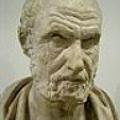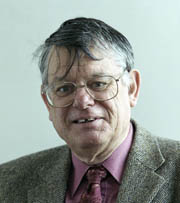12 - Malcolm Schofield on the Presocratics
Posted on
World-leading expert Malcolm Schofield of Cambridge University speaks to Peter about the development of Presocratic philosophy, from the Milesians to Parmenides and the reactions he provoked.
Themes:
Further Reading
G.S., Kirk, J.E. Raven, and M. Schofield, The Presocratic Philosophers (Cambridge: 1983).
M. Schofield, An Essay on Anaxagoras (Cambridge: 1980).







Comments
Pre-Parmenedes and Post-Parmenedes
As I bounce from one episode to another, usually one per day, I'm listening for potential recommended resources for my intro-level students. With that in mind, I especially appreciate these summary episodes.
Over the years, I've come to think that a key to understanding a philosopher or group of philosophers is to orient oneself to the key question(s) they asked, and the way (eg, method) they thought it was answered.
So, whether one is satisfied with a worldview centered around Water, The Unbounded, or Air, it's remarkable to meditate on the type of question these references to the Arche are addressing. As your episode emphasized, suddenly we're discussing natural explanations of natural events. And, as implausible, paradoxical, and even silly as Parmenides' references to The One can seem, one can appreciate how it came out of Rationalism, replacing questions about the Arche and the Problem of the One and Many with discussions about Being and the problem of Reality and Appearance.
Maybe I'm oversimplifying the narrative; but, given this narrative, I'm trying to wrap my thoughts around the claim that the Atomists were Dualists. By this, was Professor Schofield emohasizes that they adopted Parmendes's metaphysical questions about Reality and Appearance? If so, that makes sense, though their Atomism can also provide an answer to the Problem of the One and Many (as well as interesting ideas about perception and knowledge) (as well as leading to ethical questions, of course). I'm just not used to thinking about The early Atomists as Dualists, and what that implies. Whether you adopt Professor Schofield's way of describing them, can you say some things about this?
And, as always, if the way I set my question up seems misleading or problematic, I'd appreciate the clarification.
Thanks again,
Michael
In reply to Pre-Parmenedes and Post-Parmenedes by Michael Aparicio
Atomists as dualists
I have to admit I can't remember what Prof Schofield said in the episode but there is a straightforward sense in which the atomists were dualists, namely that their universe consisted of body and void. Actually you can think about this as a response to Parmenides: let's allow non-being (= void) to exist, and explain how this is possible by thinking of void as just an emptiness through which atoms (= being) move. The response to the Eleatics is even clearer if you think of Melissus instead of Parmenides because he talks about whether being can move and says it would have to move into non-being, which is absurd (or gives an argument to that effect), and the atomists are saying no, that is exactly what happens.
Thanks
It was a passing comment during which he pushed back on the claim that the Atomists believed in a Many over The One. It struck me because he was pushing back on such a common narrative. But, yes, he referred to Atoms as one. Now that you remindef me, he probably was pairing atoms and the Void. I'll have to listen to it again. Thanks.
The Practicality of Philosophy
Your discussion near the end of the podcast concerning the practicality of Socrates over his predecessors made me think.
Today philosophers are notorious for being people who keep to their ivory towers. Maybe Empedocles who claimed divinity saw himself in this way! I think the preSocratics were definitely not uninvolved in common life as Malcolm hints at when he talks about Thales as a 'public person' and Heraclitus' engaging riddles.
Sure they were working with abstract metaphysical ideas but they usually connected these to their empirical experience i.e. Thales' claim that everything is made of water. Maybe the idea that Metaphysics is separate from Ethics is a product of modernity?
Thanks for this insightful podcast.
I can't believe it is over a decade old!
In reply to The Practicality of Philosophy by Jonathan Westley
Metaphysics and ethics
Yes we have been going for a long time! I think you are right that in pre-modernity ethics and metaphysics, or the different branches of philosophy in general, were more frequently pursued together rather than as separate fields. But of course they did distinguish them as separate fields, like, Aristotle has separate works on ethics and metaphysics, the Stoics saw philosophy as divided into physics, ethics, and logic, etc.
Add new comment